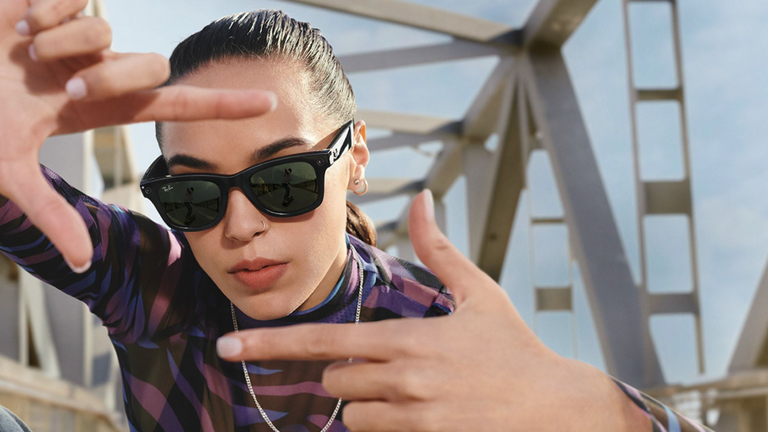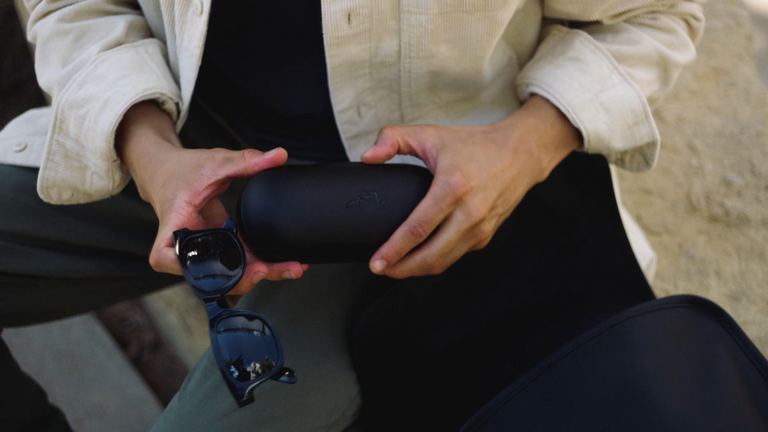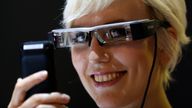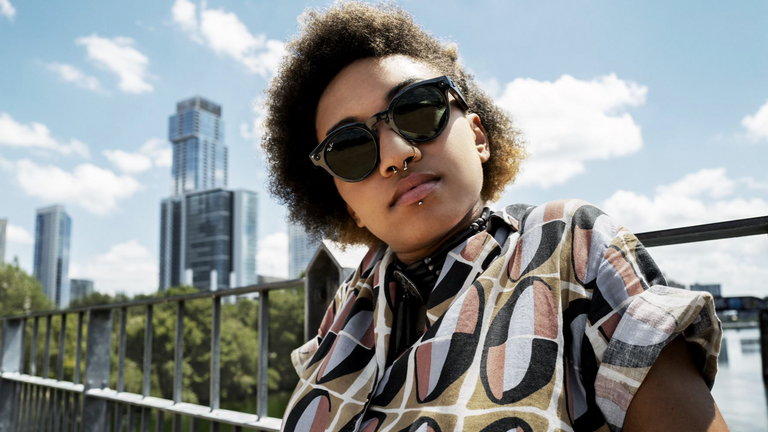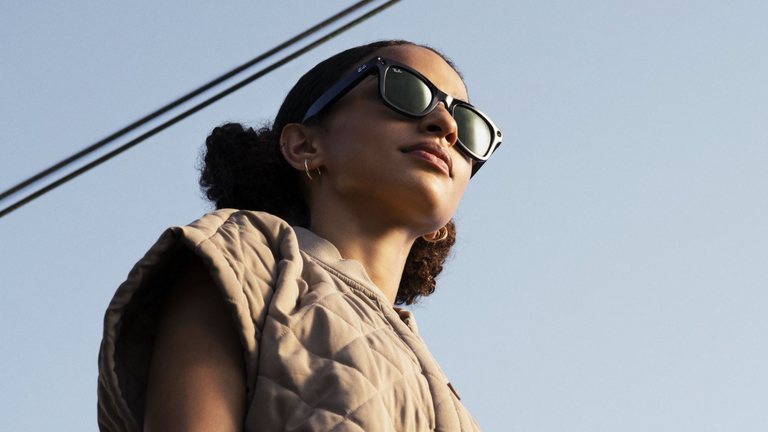Facebook and Ray-Ban launch range of smart glasses called Ray-Ban Stories
Facebook and Ray-Ban have announced new smart glasses called Ray-Ban Stories are launching on Thursday in three different models, five colours, and with a range of lenses – including prescription – retailing for £299 in the UK.
The glasses are launched alongside a bespoke app called Facebook View which is needed to pair with the devices to downlink the images and videos to a smartphone.
Ray-Ban Stories are much more similar to Snap’s Spectacles than Google Glass, featuring no augmented reality features such as a transparent heads-up display, showing there is still a long distance to go before Mark Zuckerberg manages to turn Facebook into a metaverse company.
Instead two 5 MP cameras and a three-microphone audio array allows the wearer to capture still images and videos without needing to mediate their experience of an event through the screen of a phone.
The glasses have a six-hour battery life on a single charge and can record videos up to 30 seconds – a length Facebook expects to be a sweet spot for content shared on social media platforms.
The glasses also come with open-ear speakers allowing people to use them as headphones. Certainly on their highest volume people around users will be able to hear what is being played, but the sound quality was clear when Sky News used them.
No analytics are applied to the images while they’re on the devices or in the Facebook View app, which doesn’t include any advertisements, although the normal processing would take place if uploaded to another Facebook service or that provided by another social media platform.
In terms of privacy, a Facebook blog post said: “As with any new device, we have a big responsibility to help people feel comfortable and provide peace of mind, and that goes not only for device owners but the people around them, too.”
To this end a small white LED on the frame shines when photos and videos are being recorded to notify people nearby.
Taking photographs and videos without the user being able to preview that content as well as the relatively low camera quality – 5MP is well below the 12MP iPhones have used since the iPhone 6, for instance – means the glasses are unlikely to be adopted by professional photographers.
Facebook argues the 5MP cameras “are able to deliver superior media experiences compared with many more powerful cameras, thanks to a lot of work under the hood on the processing pipeline” including “machine learning-enhanced tone rendering to enhance photos and videos”.
Speaking to Sky News, Matthew Simari, a product manager at Facebook Reality Lab which specialises in augmented reality products, said there’s a particular pair of images which the company showed its team which epitomised the idea behind the glasses.
“It’s of St Peter’s Square in 2005 versus 2013. When they announced the pope in 2005, it’s a sea of faces looking up at the Vatican. In 2013, it’s a sea of faces looking at their phones looking up at the Vatican,” Mr Simari said.
The goal with Ray-Ban Stories was to create a product which eliminated the “false choice” or either “living in the moment or staying digitally connected”.
But they still fall short of what Mark Zuckerberg described as the metaverse – “an embodied internet that you’re inside of rather than just looking at”.
“That’s what everyone is working towards long term… there’s a journey to get there… Even in this product, physics is unwieldy, it has very harsh constraints that are inflexible, and so there’s a variety of things to solve on that journey,” Mr Simari said.
Facebook had to re-engineer components so they would fit into the “smallest possible space and the lightest possible frame” which “drove a lot of decisions, from speaker architecture to the camera selection”, the company explained in a blog post.
Facebook has learned a lot from the response to Snap’s launch of the Spectacles, which were first launched in 2016 before the company was forced to write off $40m (£29m) as it “misjudged strong early demand” for the devices.
A third edition of the Spectacles is now available, but reviewers have complained about an uncomfortable frame – something Facebook is aiming to address through its partnership with Ray-Ban’s parent company EssilorLuxottica.
